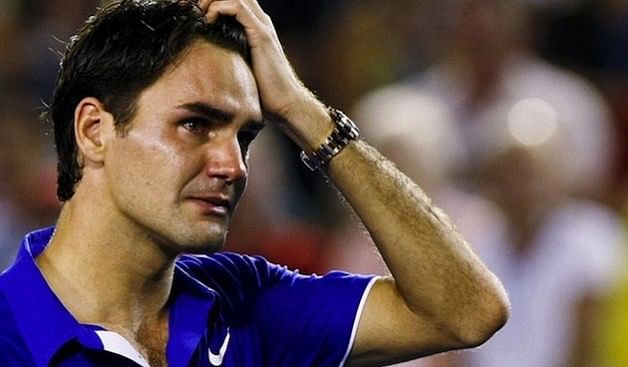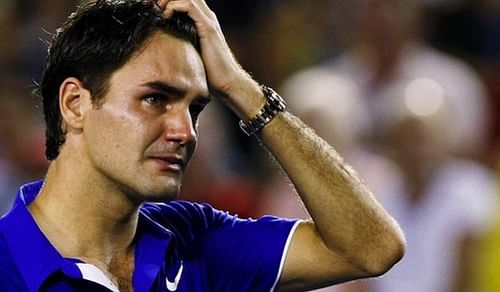
Inconsistency is Roger Federer's greatest enemy in his twilight years
On a balmy evening in Shanghai, Roger Federer was waving his fans an early adieu as he walked away vanquished from the Olympic stadium. The world No.3 was plagued by an enemy within – strangled by the curse of inconsistency that is beginning to take hold of the great man’s citadel.
As shocked as they were at his untimely 6-7(4), 6-2, 3-6 departure in the second round of the Shanghai Rolex Masters, defeat is becoming a familiar entity to the large army of Federer fans across the globe.
This is not the first time in recent memory that Federer suffered an early loss at the hands of a relatively unheralded player. Remember Sergiy Stakhovsky and Federico Delbonis at Wimbledon and Hamburg in 2013. But this match in Shanghai did throw up a curious combination of numbers that could rattle a few minds inside the Federer camp.
Albert Ramos barely registered a number that was superior to Federer on the stat-sheet. Of course he was marginally better on the first serve count (75-70%), but Federer surpassed his opponent by a large margin (69-83%) in the percentage of first serve points won.
Essentially negating any impact from the difference in first serve percentage.The rest of the numbers barely suggested he might win – the Spaniard fired six aces to Federer’s fifteen. He won just 18 return points to 31 by the elegant Swiss. And overall the winner managed to win 48% of the points to 52% won by Federer.
In the end though none of that mattered. Ramos won the points that counted, including the last two to deliver a fatal blow. And he did not even have to win – Federer sank a routine forehand into the net to offer match point before sailing his backhand long to exit the tournament.
Of course, we need to factor that Federer was playing his first competitive match since losing to Novak Djokovic in the finals of the US Open. But even considering the likely impact of a rusty game, it was shocking to see Federer lose a match that he should have won, especially after taking the second set comfortably.
It was interesting to digest the outcome of the longish points in this contest. Of the 23 points that lasted more than nine shots, the Spaniard won 13 to 10 for Federer. In many ways, the underlying pattern of those rallies was a defining characteristic of this match.
Ramos did not shy away from the battle, right from the beginning. He was willing to take the game to Federer, frustrating the great Swiss into unseemly errors. There were 30 of them off the Federer racket through a match that lasted just over two hours.
Federer missed glaring opportunities in the very first game, squandering two break points and an opportunity to take control of the match. Break point conversion has always been one of Federer’s Achilles heels and the problem is getting accentuated with his advancing years.
The slip emboldened his Spanish opponent who stuck with Federer to snatch the first set in a closely fought tie-break. Federer made a strong statement by breaking twice to take the second set. But Ramos refused to fade away and it was the Swiss that wilted in the eighth game of the final set to suffer an early exit.
"I'm always cautious," Federer explained even as he tried to put it down to luck. "I don't underestimate or lack respect for anybody out there. These guys are all touring professionals, they know what they're doing."
"I just think the first round here in Shanghai has always been historically quite difficult, getting used to the conditions and the surface and the balls," added Federer. "Last year I got lucky. This year I didn't. So it's a pity."
He was referring to the fact that he saved five match points against Leonardo Mayer at the same stage last year to stay afloat, before eventually winning the title later that week.
It is a pity indeed, because when Federer takes a deeper look at the details of the match, he will notice the patterns of aggression that defined the outcome for him. In the first and third sets, Federer was pinned behind the baseline, while he was dominant in the second when he played over half the points from inside the court against a spirited Ramos.
The minor inconsistencies in Federer’s patterns of play are beginning to hurt the great Swiss. The shanked forehands, overcooked backhands and missed break points are all adding up more than they have in the past. And more importantly, the lapses are coming for Federer in the moments that matter.
Undoubtedly, Federer will continue to play a high level of tennis for a while to come. But he is just as likely to suffer these uncharacteristic defeats as he carries his legacy through his twilight years.
